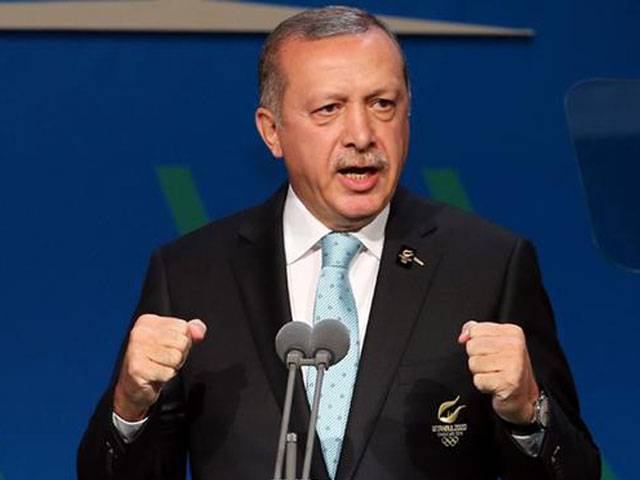ISTANBUL - Turkish President Recep Tayyip Erdogan has approved a bill giving telecoms authorities more power to monitor online users and block websites, the latest move tightening state control over the Internet.
The new measures, contained in a bill that was submitted to parliament by the ruling Justice and Development Party (AKP), come after the introduction of a law in February making it easier for authorities to block access to web pages without a court order.
This was limited to “attacks on privacy” but the new law, approved late Thursday, strengthens these powers and allows the telecoms authority TIB to block websites “to protect national security, public order and to prevent crime” without a court order. Service providers would then have to block the website or remove the content within four hours.
It also allows the TIB to store online communications and traffic data for up to two years, including information on which websites were visited by Internet users and for how long.
Until now, only hosting providers were allowed to store the information. The TIB was able to obtain the data only as part of a criminal investigation or upon a court order.
The law raised eyebrows coming just a week after Turkey hosted a major UN-backed forum on Internet governance, where some participants denounced the Turkish government’s “draconian” curbs.
Reporters Without Borders said on Wednesday that it “showed that the Turkish authorities are ready to go even further down the road of Internet censorship”.
“By increasing the possibility of blocking sites in this way, the authorities are yet again reaffirming their determination to control the Internet,” it said in a statement.
The main opposition Republican People’s Party (CHP) has fiercely opposed the law and has vowed to continue the fight in the Constitutional Court to overturn it.
Erdogan, who was elected president last month after ruling Turkey as premier for over a decade, has made no secret of his disdain for social media, comparing it to a “murderer’s knife” and once famously vowing to “wipe out” Twitter.
The government temporarily blocked Twitter and YouTube in March after they were used to spread audio recordings implicating Erdogan and his inner circle in a corruption scandal.
The move sparked outrage both at home and abroad and triggered concerns that Erdogan was seeking to increase his powers to silence critics and accelerate a slide towards authoritarianism.
Friday, April 19, 2024
Erdogan passes law tightening Turkey’s grip on Internet

8:27 AM | April 19, 2024
8:09 AM | April 19, 2024
UNICEF to provide $20m for youth projects in Pakistan
2:04 PM | April 19, 2024
Maryam reviews progress on Nawaz Sharif IT City project in Lahore
2:04 PM | April 19, 2024
Pakistan, Saudi Arabia vow to solidify efforts in defence collaboration
1:38 PM | April 19, 2024
Minister reviews naan, roti prices
April 19, 2024
ETPB land worth Rs 40b retrieved so far
April 19, 2024
A Tense Neighbourhood
April 19, 2024
Dubai Underwater
April 19, 2024
X Debate Continues
April 19, 2024
Hepatitis Challenge
April 18, 2024
IMF Predictions
April 18, 2024
Kite tragedy
April 19, 2024
Discipline dilemma
April 19, 2024
Urgent plea
April 19, 2024
Justice denied
April 18, 2024
AI dilemmas unveiled
April 18, 2024
ePaper - Nawaiwaqt
Advertisement
Nawaiwaqt Group | Copyright © 2024





